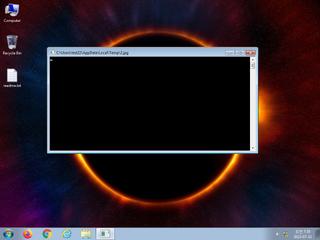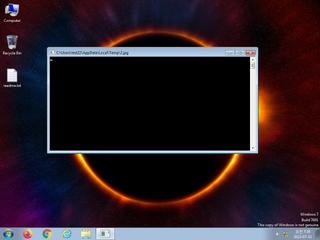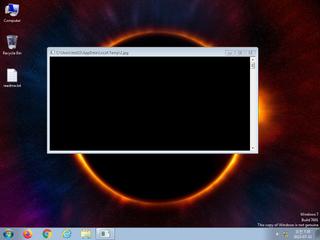ScreenShot
| Created | 2023.07.11 07:47 | Machine | s1_win7_x6403 |
| Filename | 2.jpg | ||
| Type | PE32 executable (console) Intel 80386 Mono/.Net assembly, for MS Windows | ||
| AI Score |
|
Behavior Score |
|
| ZERO API | |||
| VT API (file) | 33 detected (malicious, high confidence, unsafe, Save, Kryptik, confidence, 100%, KillAV, gen1, score, Quasar, CrypterX, Swhl, Sabsik, T7NEWB, AgentTesla, Artemis, R002H0DG923, MSIL@AI, MSIL2, Pfmfd6, BFmrQxjf1xsapTg, Static AI, Malicious PE, ZemsilF, qm0@aipcZnb) | ||
| md5 | 7416ede6924c85117720a8a9d158c67f | ||
| sha256 | 2b2c926a0d587f409f3c7453d3d9018642cdc51abce1752eb2bf395728619576 | ||
| ssdeep | 6144:sfKS9XQhhREyGp2cCeu6rdBCAOXLSqr8IN:C0Q2cCjnr | ||
| imphash | f34d5f2d4577ed6d9ceec516c1f5a744 | ||
| impfuzzy | 3:rGsLdAIEK:tf | ||
Network IP location
Signature (7cnts)
| Level | Description |
|---|---|
| danger | Connects to an IP address that is no longer responding to requests (legitimate services will remain up-and-running usually) |
| danger | File has been identified by 33 AntiVirus engines on VirusTotal as malicious |
| notice | Looks up the external IP address |
| notice | Performs some HTTP requests |
| notice | Resolves a suspicious Top Level Domain (TLD) |
| notice | The binary likely contains encrypted or compressed data indicative of a packer |
| info | This executable has a PDB path |
Rules (3cnts)
| Level | Name | Description | Collection |
|---|---|---|---|
| info | Is_DotNET_EXE | (no description) | binaries (upload) |
| info | IsPE32 | (no description) | binaries (upload) |
| info | PE_Header_Zero | PE File Signature | binaries (upload) |
Network (5cnts) ?
Suricata ids
ET DNS Query to a *.top domain - Likely Hostile
ET MALWARE Common RAT Connectivity Check Observed
ET POLICY External IP Lookup ip-api.com
ET MALWARE Common RAT Connectivity Check Observed
ET POLICY External IP Lookup ip-api.com
PE API
IAT(Import Address Table) Library
mscoree.dll
0x402000 _CorExeMain
EAT(Export Address Table) is none
mscoree.dll
0x402000 _CorExeMain
EAT(Export Address Table) is none


